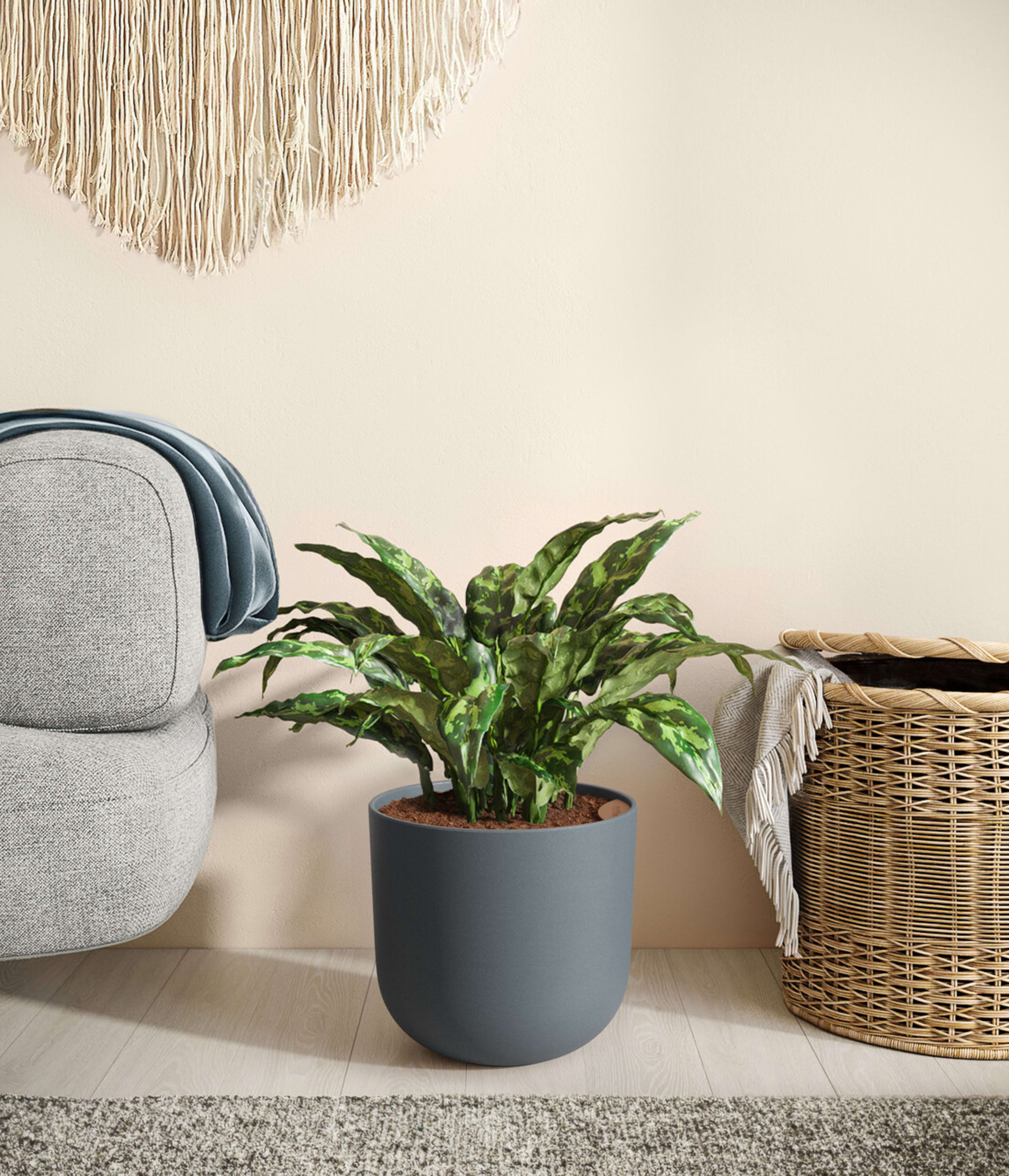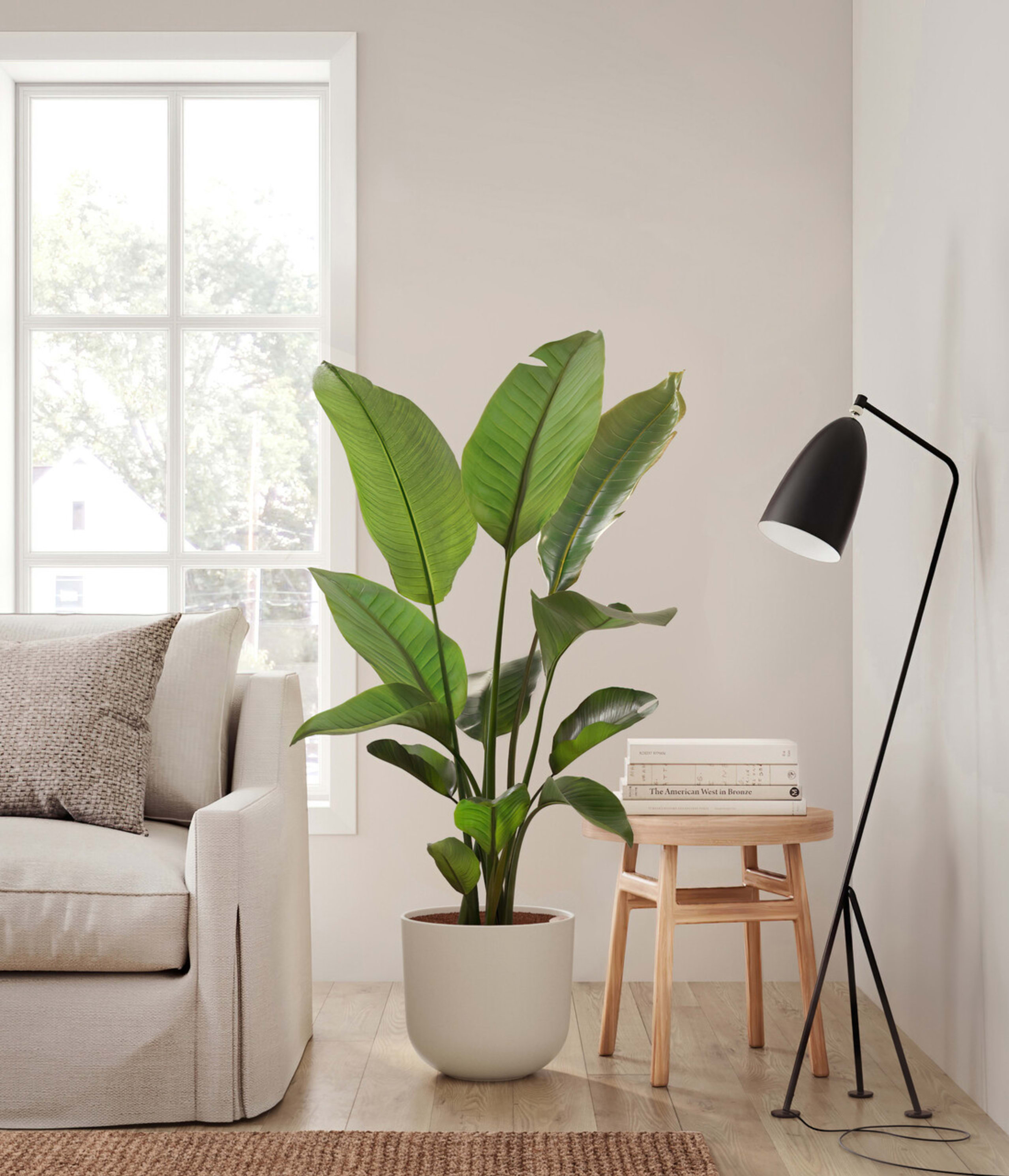Golden Snake Plant
Self Watering, Longer Living
$69
Or 4 payments of $17.25 with
Learn morePot: Ceramic Amber
Stand: None
Self-Watering Ceramic Planter
90-Day Guarantee
Free Shipping Included
Golden Snake Plant at a Glance
Water once every 2 months with

easyplant’s system prevents overwatering and root rot
15"-22" tall (including pot)
Typically grows up to 32" tall indoors
Ideal for low light environments
Perfect for a tranquil bedroom atmosphere
Golden Snake Plant Bio
Originating from the desert lands of Africa, Asia, and Madagascar, Snake Plant is the most resilient of all houseplants and thrives under any condition - including the most forgetful of plant lovers. Its tall and narrow sword-shaped leaves wear a vibrant green edged with streaks of sunshine, ever so elegantly stealing the show. Not only is it easy on the eyes, Golden Snake Plant is a master air-purifier, removing allergens and toxins from the air we breathe, so keeping it goes a long way for our health.
Light Instructions
Snake Plants grow best in a well lit space with medium to bright light and can adapt to low light or spaces without natural light as well.
How does self-watering work?
- 1Simply open the lid and fill with water
- 2Your plant drinks only when needed
- 3The result: healthy, long-lived plants that are easy to maintain
easyplant benefits
- Carefree and convenient
- Never worry about when to water
- Much healthier plants that live longer
- We use proven Waterwick TM technology to optimize water consumption
| Advantages | Other | |
|---|---|---|
| Water every | 2 Months | 1 Week |
| Overwatering | Rare | Common |
| Underwatering | Never | Common |
| Over compacted dry soil | Never | Common |
| Easily know when to water | ||
| Stable root growth |
Golden Snake Plant Care
Golden Sansevieria is very tolerant and hard to kill, making it an easy-care plant that will quickly bounce back from any mishap.
To help it grow optimally and evenly, occasionally dust the leaves and rotate the pot by a ¼ turn once a month.
Frequently Asked Questions
What are other common names for a snake plant?
Colloquially, you’ll probably notice there is no singular name for the Sansevieria — some are scientific and refer to specific varieties, some have origins in folklore, others are critiques of your in-laws. The name “Sansevieria” itself, has come into question in recent years as molecular discoveries have recategorized it under the Dracaena genus. Below are just a few examples of snake plant names.
*Snake plant. Easily the most common name for the Sansevieria and its varieties, this refers to the chevron or rosette patterns that can look like coils, as well as the sharp points at the end of the leaves.
*Dracaena trifasciata. This is the updated common scientific name for the plant.
*Dracaena trifasciata ‘Laurentii’. The ‘Laurentii’ variation of the plant has yellow edges with horizontal stripes.
*Dracaena trifasciata ‘Hahnii’: This is a shorter version of the plant that is more shrub-like, at about six inches in height. “Hahniii” refers to its resemblance to a bird’s nest.
*Mother-in-law’s tongue. One of the cheekier names for this plant is a reference to the sharp words delivered by the least favorite mother-in-laws among us.
*Saint George’s sword. Especially upon growth, the plant begins to take the shape of a great sword with a sharp point to match.
*Viper’s bowstring hemp. So-called because the tough fibers of the plant have historically been used to make bowstrings.
What are the benefits of having snake plants?
Like all houseplants, a snake plant emits oxygen and can modestly improve air quality. Several modern studies have demonstrated that both the active caring for plants — think: all those happy gardeners in your life — and the aesthetics of them can improve mental health, lifting moods and reducing anxiety. There's a good reason many hospital waiting rooms have plants, after all. Largely, snake plant benefits are the benefits of all plants.






 small
small medium
medium collections
collections large
large huge
huge